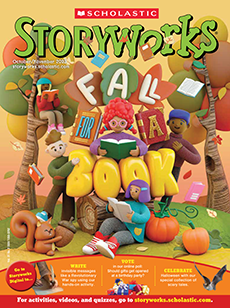My Grandpa Nick says everyone needs a dream. He says they keep your insides oiled. Even toddlers have dreams, Alex,” he tells me while we’re walking down the city street after our Saturday lunch of pepperoni pizza. “That’s what makes them take those first steps away from their mamas.”
Then he asks me about my dreams and tells me that being 10 is no excuse for not having any.
I have two. The first is to find the treasure that my great-uncle Jimmy lost. Grandpa helps me with that one. It seems that Uncle Jimmy buried his life savings, including a bag of money and seven silver spoons, and then forgot where he put it. Before Uncle Jimmy passed away, he whispered to Grandpa that he thought it was hidden in an alleyway in my New York City neighborhood of Astoria, Queens.
There’s more concrete than dirt here, so you’d think it would be easy to find. My dad thinks it accidentally got tossed into the garbage, but Grandpa and I won’t give up. We scour the streets every chance we get. Last week we searched near a candy store. I came home with a bag of gummy bears, three chocolate bars, and a monster of a stomachache. But no treasure.
Since Grandpa Nick knows all about my first dream, I tell him about the second. After all, I’m not the type of kid who disappoints his grandpa. I tell him that I want to earn my orange belt in karate. “It’s not really much of a dream,” I say, while people bustle by and the elevated train rumbles overhead. “It’s not like a buried treasure dream.”


